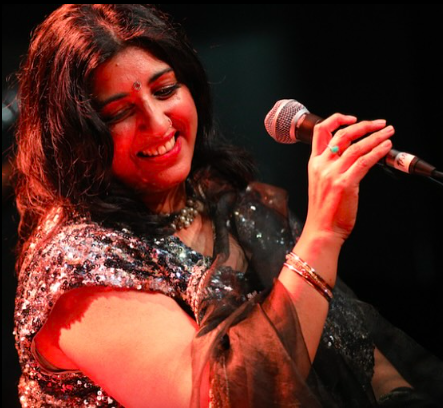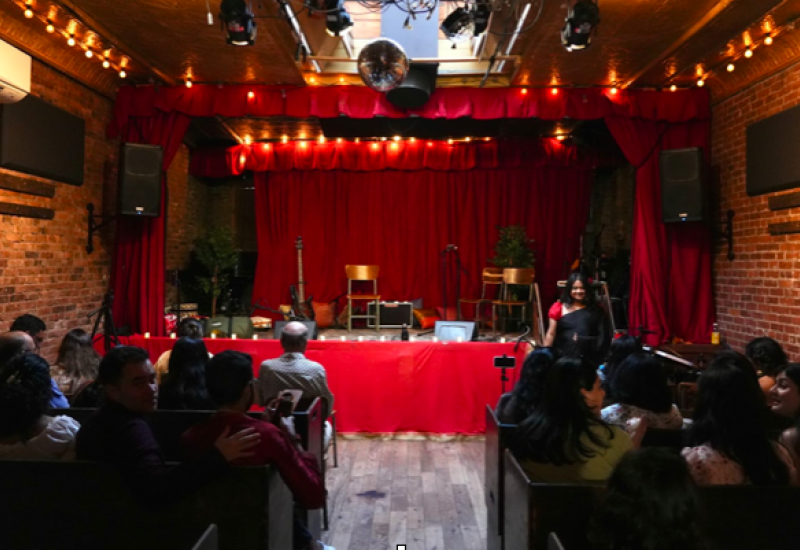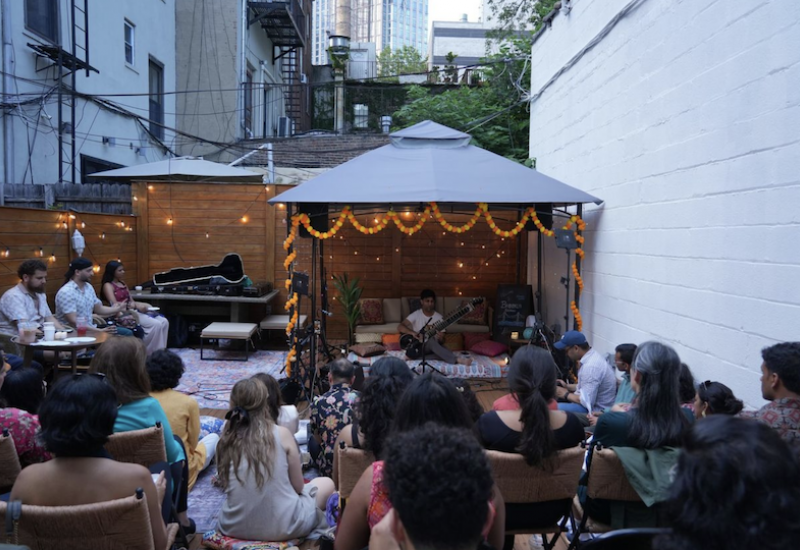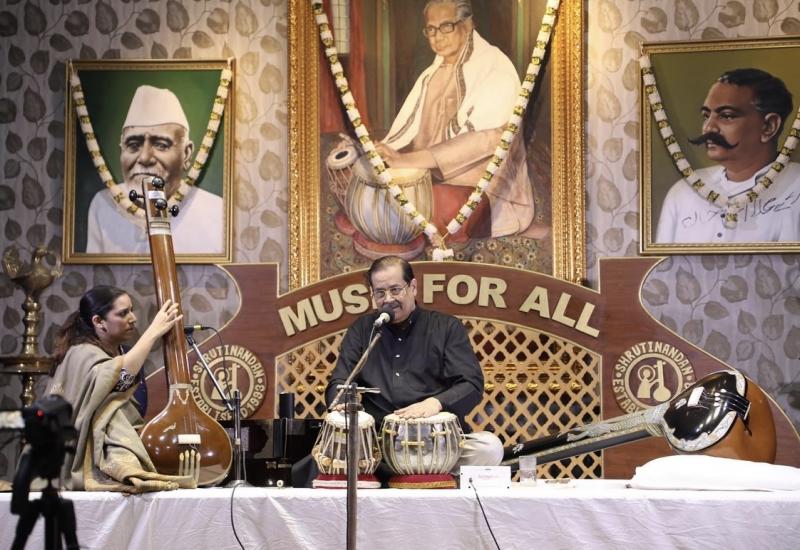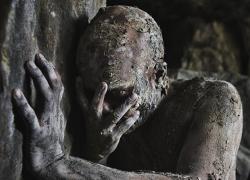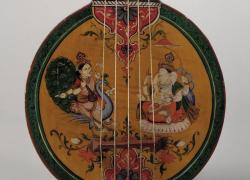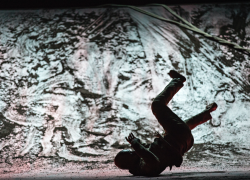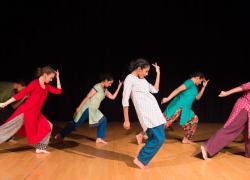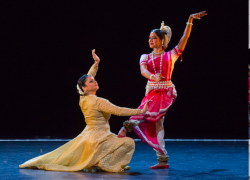Sonia Mehta – Protest Songs in Ancestral Languages
Sonia was born in Liverpool into a second-generation Punjabi family in the 1970s where music was an integral part of family life. Whether it was a gathering of friends and family or an occasion like a wedding, the dholak would be brought out by her dad, a skilled dholak and tabla player. Punjabi folk and filmi songs were the staple. ‘Growing up in a working class community, this wasn’t high culture, it was survival and holding onto a culture in the midst of daily racisms’, Sonia remarks with a smile. Meanwhile, as a brown girl in a Liverpool with few Asians, Sonia felt at odds with the society around her and found her ‘sanctuary at home’. It was the era of the National Front, and it was common to see racist graffiti daubed near homes of the Black and Asian minorities. The early brushes with racism left their mark on Sonia who eventually became a passionate anti-racist campaigner.
When she moved to London in the early ‘90s as a student at the University of East London, Sonia fell under the spell of the Asian music scene. South Asian singers like Sheila Chandra (on Top of the Pops), Najma Akhtar and Nazia Hassan were making waves. Tabla player and music maker Talvin Singh, together with music producer DJ State of Bengal (Sam Zaman), was setting up the Anokha club nights, weekly sessions at the legendary Blue Note venue in Hoxton Square, in London’s East End. The music combined drum and bass with electronica and Indian instrumentation. Sonia met Talvin Singh at a gig and they became friends at the start of her journey in music and activism.
While still a University student Sonia started volunteering in the social sector with local East London campaign organisations Newham Monitoring project and London Black Women’s Project (former Newham Asian Women’s Project). She also had a short stint in the UK Bollywood music scene. Following a conversation with human rights activist friend, Asad Rehman (then with Amnesty, now executive director of War on Want), the concept of ‘conscious clubbing’ (music without drugs and alcohol) was founded . An Observer article from 2001 described these club nights:
'Non-profit-making monthly club nights such as Raha at La Scala and asleep at the wheel at Club 333 pump out politically charged live music, visuals, art, talks and poetry readings designed as an antidote to the numbing effects of commercial clubs. 'We're trying to bring consciousness back in,' explains Alex Estrellado, one third of Purple Banana Products, which is the brains behind Raha… Raha ('the path' in Hindi) packs out its venues'. Up to 2,000 people come to see performances from Asian Dub Foundation, Daddy G from Massive Attack, Cornershop, Irvine Welsh, Primal Scream and Organic DJs.'
Music and political activism fed into the music group Salaam & Funk that Sonia formed in its wake.
Sonia had been training in Hindustani classical vocal music with Pandits Rajan and Shajan Mishra over annual summer schools run by the Asian Music Circuit. Sonia chose to sing only in the language of her ancestors: Punjabi, Hindi and Urdu. Performing at conscious club nights gave the Asian and Black young people a ‘home’, since they were routinely being turned away from mainstream club spaces. They used these events to bring people together in a way that made them feel anchored and motivated towards political campaigns. This was a hugely successful underground movement that carried on quietly until the media discovered it and blew the lid on it.
Through campaigning Sonia had also befriended John Pandit, of the Asian Dub Foundation. ADF was set up in 1993 through a development grant by the Arts Council. When they were signed by a major record label, they asked the Arts Council if they could repurpose the money to set up ADF Education to allow young Black and Asian people to connect their cultural heritage sounds with their British Black/Asian identities. ADF's music was rooted in political music that challenged the status quo, such as punk, reggae and dub. They infused Asian sounds and instruments. The movement brought solidarity to both Black and Asian people who historically faced discrimination.
Sonia contributed vocal tracks to ADF’s Enemy of the Enemy album and became head of ADF’s Education Wing. Their work with youth and community groups was at the heart of the Company’s mission. ADFED moved to Tower Hamlets to be part of the multi-arts venue Rich Mix when it came on the scene in Shoreditch. John Pandit was later invited to be on the Board.
ADFED’s outstanding resource was their mobile studio equipment which they could take to schools and community centres. Helping disadvantaged kids express themselves through music was hugely empowering. The skills that were developed fed back into their work as the young people became the music teachers of the future. Aktav8r is one such stalwart who is now the lead rapper for ADF.
Pandit G from ADF and Sonia from Salaam & Funk will be in conversation before their respective performances to talk about their relationship to Rich Mix and East London through their personal and professional engagements.
Come and hear the history of these pioneers at the Rich Mix on Thursday 11 April at 6.00

